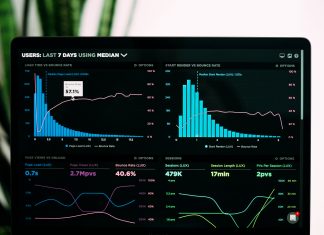The world of trade surveillance is confronted with daunting challenges, characterized by the daunting task of keeping pace with the rapidly evolving and complex financial markets. Despite facing chronic resource limitations and limited influence within firms, there are emerging reasons for optimism in this sector.
A new ray of hope is seen in the evolving perception of trade surveillance. Increasingly, it is being acknowledged as a crucial component of a firm’s trading flow, rather than a mere isolated department.
This shift in perspective is one of the primary insights from “The Future of Trade Surveillance,” a report by 1LoD, a leading intelligence provider for risk and control professionals, in collaboration with Eventus, a specialist in trade surveillance and market risk solutions.
A leader in surveillance at a global institution shared with 1LoD, “What we’re trying to do is crazy! We’re trying to run a surveillance system with similar complexities to the associated trading systems, but for a hundredth of their budget, to detect extremely rare events and behaviours, some of which we do not know exist, in a process that generates almost 100% noise.”
The report also highlights a certain stagnation in surveillance methods over the last decade, pointing out an urgent need for innovation. However, firms are hesitant to abandon their legacy systems, despite their limitations, due to the comfort of familiarity and the fear of falling behind competitors.
Joe Schifano, Global Head of Regulatory Affairs at Eventus, in a keynote address at the XLoD Global conference in London, emphasized the evolving expectations of regulators. He stated, “Whether it’s the outcomes-based methodology of the FCA, or the enforcement regime in the US, there are clear signs that regulators are honing their surveillance tools to supervise market participants.”
Schifano further explained, “’Being in the pack’ or ‘using the same functionality as everyone else’ is no longer really something you can rely on. Whether you are building an in-house solution or supplementing with vendors, true flexibility, interoperability and scalability are now required capabilities – and you must focus on your risk assessment.”
The 1LoD report also delves into specific compliance challenges faced by firms and potential solutions. For instance, it suggests that surveillance budgets could be augmented by comparing them with the monetary penalties imposed by regulators. Moreover, the report addresses the need for top management to foster a culture of compliance to empower the surveillance function.
In conclusion, integrating surveillance into the trade lifecycle is deemed essential by professionals in the field. As Schifano puts it, “Moving forward, AI and other novel technologies may well transform banks’ risk and control functions. But this does not come without cost. In today’s world, where compliance leaders grapple with multiple challenges, innovation must be deliberate, thoughtful, and in alignment with the ultimate goal of mitigating regulatory risk.”
Read the full post here.
Keep up with all the latest FinTech news here.
Copyright © 2023 FinTech Global











